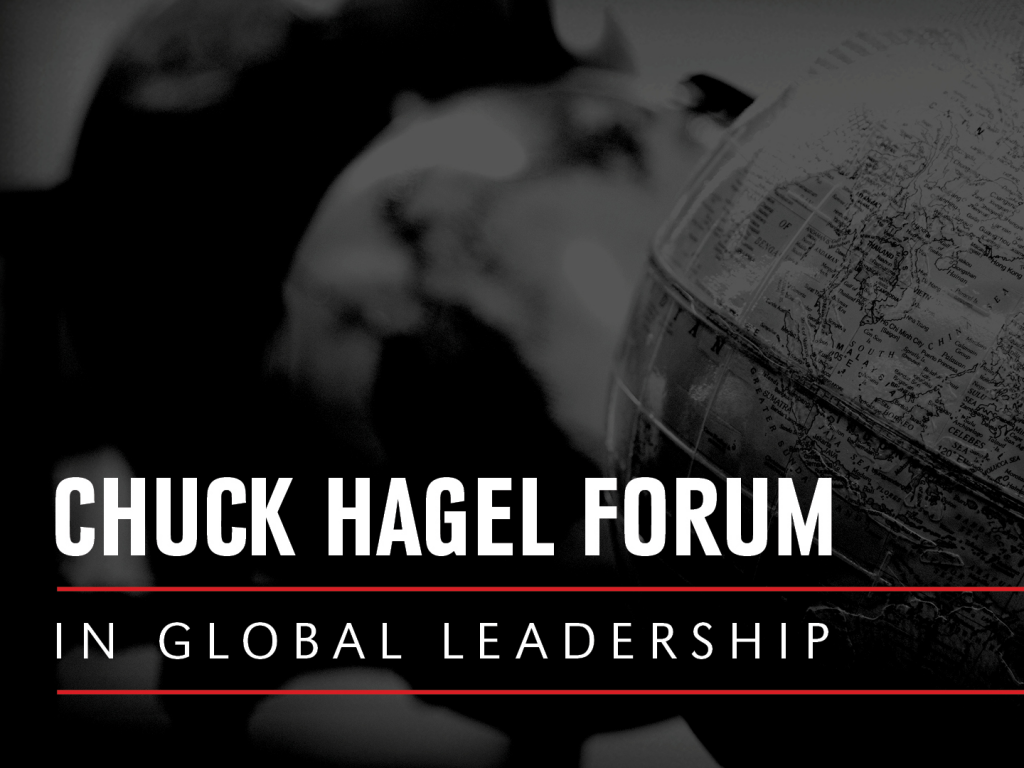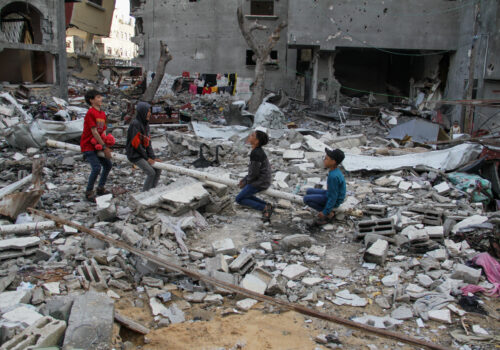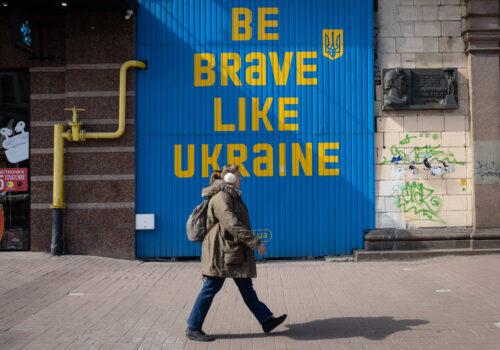Watch the event
To grapple with today’s headline-making global turmoil, policymakers must have a strong grasp of history, argued former US Secretary of Defense Chuck Hagel and former US Attorney General Eric H. Holder, Jr.
The two former officials reflected on the history of the United States’ leadership in the world on April 4 at the 2024 Chuck Hagel Forum in Global Leadership, hosted by the Atlantic Council and the University of Nebraska at Omaha (UNO).
“There is a reason why the United States led in organizing a post-World War II world order,” Hagel explained, pointing to a postwar realization that isolationism wouldn’t secure the country—and to the US network of allies and partners. “If we did not have those relationships, we couldn’t have our bases; we couldn’t have our troops in certain areas of the world.”
While the United States has led in creating today’s world order, Holder warned Americans that “our democracy is at risk.” Below are highlights from the conversation—moderated by Jody Neathery-Castro, associate vice chancellor for global engagement at UNO—which touched upon the war in Ukraine, the Israel-Hamas war, and racial justice in the United States.
Risks in Ukraine
- Holder explained that the United States winning the Cold War has led to an era of “unparalleled prosperity and peace,” but “that is all at risk by not coming to the support of Ukraine.”
- “How we react in this matter is being observed by despots and strongmen and dictators,” Holder warned. Hagel agreed, saying that the war in Ukraine poses a security threat for countries far beyond Europe, as China and North Korea continue to watch and learn—and evaluate whether the West can hold its resolve.
- Hagel said that some Americans don’t seem to understand the danger of letting Russian President Vladimir Putin exert his will and argued that the consequences of failing to support Ukraine are dangerous. “It will force all nations of the world, especially our partners . . . not to trust us.” Holder agreed, saying that sowing doubt in the minds of allies will allow dictators to “probe” and find new capitals from which they can “extend their influence.”
- In national security, “there cannot be politics,” Hagel said.
The urgency for peace in the Middle East
- Holder said that Hamas needs to be held accountable for its October 7 terrorist attack in Israel, and the group must release the hostages it took. At the same time, while Israel has the right to defend itself, he said “the tactics” being used by the Netanyahu government are “extremely disturbing” and do not “serve the interests of Israel in the long term.”
- Hagel argued that the course Israel is on now “can’t continue,” and he warned that the way the war is unfolding is engendering global criticism not only of Israel but also of the United States. He said regional and outside partners need to facilitate peace between Israel and the Palestinian territories. “You’ve got to start it somewhere, and the United States is the only country that can help do that.”
Katherine Walla is an associate director on the editorial team at the Atlantic Council.
Watch the full event
Further reading
Sat, Apr 13, 2024
Experts react: Iran just unleashed a major attack on Israel. What’s next?
New Atlanticist By
What will Israel do next? Has a wider regional war begun? What role will the United States play? Our experts weigh in below.
Fri, Apr 12, 2024
Dispatch from Gaza: ‘My son, every night he screams and convulses’
MENASource By Arwa Damon
Arwa Damon arrived in the Gaza Strip on a humanitarian mission for her charity, INARA, two days after the Israeli airstrike on the World Central Kitchen convoy. This is what she saw.
Fri, Apr 12, 2024
Dispatch from Kyiv: Ukraine is fighting for its economic survival, too
New Atlanticist By Olga Khakova, Charles Lichfield
The longer the war lasts, the more it will consume funds initially meant for long-term investments and reconstruction.
Image: Former Secretary of Defense Chuck Hagel and former Attorney General Eric Holder speak at the Chuck Hagel Forum on Global Leadership at the University of Nebraska at Omaha on April 4, 2024.




